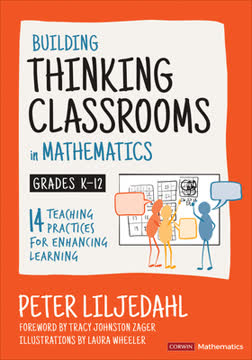つの重要なポイント
1. ストリートデータ:教育の公平性への革命的アプローチ
ストリートデータとは、私たちが脳を訓練して見分けるときに、目の高さや低い周波数で現れる質的かつ体験的なデータのことです。
教育データの再定義。 ストリートデータは、教育の公平性と変革に対するアプローチにおけるパラダイムシフトを表しています。従来のテストスコアや出席率といった「衛星データ」とは異なり、ストリートデータは生徒、教師、コミュニティの実際の経験に焦点を当てています。このアプローチは、観察、会話、学校環境への没入を通じて収集された質的情報を重視します。
全体的な理解。 ストリートデータは、生徒の学習や学校文化をより包括的に理解するために以下を考慮します:
- 生徒の声と視点
- 教室のダイナミクスと相互作用
- 文化的背景とコミュニティの知識
- 学習に影響を与える非学術的要因
ストリートデータを取り入れることで、教育者は公平性の課題をより深く理解し、より効果的で文化的に応答性のある解決策を見つけることができます。
2. ダッシュボードの反転:衛星からストリートレベルの洞察へ
生徒の資産を発見し、根本原因を理解し、変革的な解決策を求めるために、地図とストリートレベルのデータに目を向ける必要があります。
数字を超えて。 従来の教育指標は、生徒の経験や学習の全体像を捉えることができないことが多いです。ストリートデータアプローチは、定量的な高レベルデータよりも質的な地上レベルの情報を優先することで、教育者に「ダッシュボードを反転」させることを奨励します。
データの三つのレベル:
- 衛星データ:広範な定量的指標(テストスコア、出席率)
- 地図データ:中レベルのトレンド(調査、共通評価)
- ストリートデータ:詳細な体験的情報(観察、会話、アーティファクト)
ストリートデータに焦点を当てることで、教育者は:
- 隠れた強みと課題を特定
- 定量データの背後にある文脈を理解
- よりターゲットを絞った効果的な介入策を開発
- 周縁化された生徒に対する欠陥のあるナラティブに挑戦
3. 聴く力の重要性:周縁化された声を中心に据える
データの会話の出発点として周縁を選ぶことで、最も疎外された生徒や家族の希望、夢、物語が生きる静かな場所に目を向け、ピラミッドを逆転させ、権力のダイナミクスを変え、子供たちを教育の議論の中心に据えることができます。
ラディカルな包摂。 ストリートデータアプローチは、教育の意思決定においてしばしば見過ごされがちな人々の声を深く聴くことの重要性を強調します。これには、有色人種の生徒、英語学習者、障害を持つ生徒、周縁化されたコミュニティの家族が含まれます。
周縁化された声を中心に据えるための戦略:
- 生徒や家族との共感インタビュー
- 生徒主導の会議やフィードバックセッション
- コミュニティウォークや家庭訪問
- 生徒を巻き込んだ参加型アクションリサーチ
これらの声を優先することで、教育者は:
- 公平性への隠れた障壁を発見
- コミュニティの文化的資本を活用
- 信頼と強固な関係を築く
- より文化的に応答性のある実践を開発
4. 根本原因の発見:即効性のある解決策を超えて
即効性のある解決策よりも根本原因を探る。
深く掘り下げる。 ストリートデータアプローチは、表面的な解決策を超えて、不平等に寄与する根本的な要因に対処することを奨励します。これは、好奇心を持ち、仮定に挑戦する意欲を必要とします。
根本原因を発見するためのツール:
- 氷山プロトコル:パターン、構造、メンタルモデルの検討
- 玉ねぎの皮むき:問題分析のための構造化されたアプローチ
- 公平性に焦点を当てた教室スキャン
- 生徒の影を追う体験
根本原因に焦点を当てることで、教育者は:
- より持続可能で影響力のある解決策を開発
- 症状ではなくシステムの問題に対処
- 暗黙のバイアスや欠陥のある思考に挑戦
- 持続的な文化的および制度的変革を創出
5. 教育の再構築:生徒の主体性と声を育む
主体性は真空の中で生まれるものではなく、教師が知識を提供するコンテンツエキスパートとして位置づけられる伝統的な教室では育ちません。主体性は、権力が分散され、知識が民主化され、多様な視点が歓迎され、子供たちが知的および感情的に養われる学習空間で生まれます。
声の教育学。 ストリートデータアプローチは、教育と学習の見方に根本的なシフトを提唱します。従来のコンプライアンスベースのモデルの代わりに、生徒の主体性、声、批判的意識を中心に据えた教育学を推進します。
声の教育学のための6つのシンプルなルール:
- 話す量を減らし、笑顔を増やす
- 答えよりも質問を重視
- 反省と修正を儀式化
- 学習を公開する
- サークルを作る
- 成績よりもフィードバックを重視
このアプローチを取り入れることで、教育者は:
- 生徒のエンゲージメントとモチベーションを高める
- 批判的思考と問題解決能力を育成
- 所属感とエンパワーメントを促進
- 生徒を積極的な市民および生涯学習者として準備
6. 一貫性の構築:ビジョン、実践、評価の整合性
少ないほど多い;焦点がすべて。
システムの整合性。 ストリートデータと声の教育学を効果的に実施するためには、学校や地区がビジョン、教育実践、評価方法の間に一貫性を持たせる必要があります。これは明確な焦点と、もはや生徒に役立たない従来のアプローチを手放す意欲を必要とします。
整合性の主要要素:
- 共有された卒業生プロファイルの開発
- パフォーマンスベースの評価の実施
- 公平性目標に合わせた専門的学習の整合
- 教育と学習に関する共通言語の作成
一貫性を構築する利点:
- 教育者と生徒にとっての明確な方向性
- より意味のある本物の評価
- 価値観と実践の間の整合性の向上
- 生徒の成果と公平性への影響の増大
7. 大人の文化の変革:脆弱性と継続的な学習を受け入れる
魔法は私たちが配布するプロトコルや計画にあるのではなく、そのプロトコルに取り組む人々の心構えにあります。
大人の心構えのシフト。 ストリートデータと公平性に焦点を当てた実践を実施するには、教育者が自身の学習と成長に対するアプローチを変革する必要があります。これは、脆弱性を受け入れ、仮定に挑戦し、継続的な改善にコミットすることを含みます。
大人の文化を変革するための戦略:
- 公共の学習実践
- 公平性に焦点を当てた教育ラウンド
- 協力的なデータ分析プロトコル
- 反省的な聴取とコーチングの会話
大人の学習文化を育むことで、学校は:
- 公平性の取り組みに対する障壁を打破
- 集団的効力感と協力を高める
- 生徒に生涯学習のモデルを示す
- より応答性の高い適応的な教育システムを創出
8. 温かい要求者:教育者を公平性と卓越性に呼びかける
すべての瞬間が公平性の瞬間です。
ケアと高い期待のバランス。 「温かい要求者」の概念は、ストリートデータと公平性に焦点を当てた実践を効果的に実施するために必要なアプローチを体現しています。これは、生徒や同僚に対する高い期待と真のケアとサポートを組み合わせたものです。
温かい要求者の特徴:
- 不可能を信じる
- 信頼と関係を築く
- 自己規律を教える
- 失敗を学習の機会として受け入れる
温かい要求者の戦略:
- 高い基準を維持することで強さを示す
- 周縁化された声の経験を聴き、肯定する
- 成長のための選択肢を提供し、挑戦する
- 変革を実施する勇気を持つ
温かい要求者の姿勢を採用することで、教育者は:
- 公平性の問題に対して思いやりと堅実さを持って対処
- 生徒や家族との信頼関係を築く
- 継続的な改善の文化を創出
- 反人種差別的で文化的に応答性のある実践をモデル化
最終更新日:
FAQ
What's Street Data about?
- Focus on Equity: Street Data by Shane Safir and Jamila Dugan introduces a model for equity, pedagogy, and school transformation, emphasizing the importance of listening to marginalized voices in education.
- Shift from Big Data: It advocates moving away from traditional big data metrics to "street data," which includes qualitative insights from students, families, and educators.
- Holistic Approach: The book promotes a comprehensive understanding of educational challenges, encouraging educators to engage deeply with students' lived experiences to drive meaningful change.
Why should I read Street Data?
- Urgent Call for Change: The authors provide a compelling argument for reimagining educational practices to address systemic inequities.
- Actionable Framework: It offers practical strategies and frameworks that educators can implement immediately to foster equity and inclusion in their classrooms.
- Empowerment of Marginalized Voices: The book emphasizes the importance of centering the voices of marginalized students, making it essential reading for those committed to social justice in education.
What are the key takeaways of Street Data?
- Street Data Concept: Introduces "street data," qualitative, experiential data from students and families, as opposed to traditional quantitative metrics.
- Equity Transformation Cycle: Outlines a cycle that includes listening, uncovering root causes, reimagining solutions, and moving forward with courage.
- Pedagogy of Voice: Advocates for a pedagogy prioritizing student agency and engagement over compliance and rote learning.
How does Street Data define "street data"?
- Qualitative Insights: Street data is qualitative and experiential, emerging from direct interactions with students, families, and educators.
- Asset-Based Approach: Focuses on identifying strengths and cultural wealth within communities rather than merely highlighting deficits.
- Humanizing Data: Argues that street data humanizes the educational process, allowing for a deeper understanding of student experiences and needs.
What is the equity transformation cycle in Street Data?
- Four Phases: Consists of four phases: Listen, Uncover, Reimagine, and Move, designed to engage stakeholders collaboratively.
- Nonlinear Process: Allows for flexibility and adaptation as new insights emerge from street data.
- Focus on Community: Emphasizes community involvement and centering the experiences of marginalized groups throughout the transformation process.
What specific methods does Street Data recommend for gathering data?
- Empathy Interviews: Conducting one-on-one conversations to gain insights into students' experiences and perspectives.
- Co-generative Dialogues: Informal conversations between teachers and students aimed at providing feedback and co-creating solutions.
- Learning Walks: Observing classroom dynamics through an equity lens to gather data on student engagement and participation.
What is the significance of a "pedagogy of voice" in Street Data?
- Empowerment of Students: Empowers students by valuing their perspectives and experiences in the learning process.
- Shift from Compliance: Contrasts with traditional compliance-driven pedagogies, promoting active engagement and critical thinking.
- Fostering Agency: Encourages students to take ownership of their learning, fostering a sense of agency and belonging in the classroom.
How does Street Data suggest addressing systemic racism in education?
- Recognize Implicit Bias: Emphasizes the need for educators to recognize and confront their own implicit biases.
- Engage in Continuous Learning: Advocates for ongoing professional development focused on racial literacy and historical fluency.
- Implement Structural Changes: Calls for systemic changes in policies and practices that perpetuate inequity, including re-evaluating disciplinary practices and curriculum content.
What are some equity traps and tropes discussed in Street Data?
- Doing Equity: Treating equity as a series of compliance tasks rather than a holistic change process linked to culture and identity.
- Siloing Equity: Isolating equity work in separate teams or policies, disconnecting it from overall school improvement efforts.
- Tokenizing Equity: Asking leaders of color to represent equity without adequate support or engaging the entire staff in the work.
What does Street Data say about the importance of student agency?
- Empowerment Through Agency: Emphasizes that student agency is crucial for fostering a sense of belonging and mastery in learning.
- Components of Agency: Outlines four components: identity, belonging, mastery, and efficacy, each vital for navigating educational experiences.
- Measuring Agency: Advocates for measuring student agency through qualitative methods rather than traditional assessments.
What are some best practices for implementing a pedagogy of voice?
- Create Safe Spaces: Stresses the importance of creating safe and inclusive classroom environments for student expression.
- Encourage Reflection: Promotes critical thinking by encouraging students to reflect on their learning experiences and share insights.
- Utilize Collaborative Learning: Recommends using collaborative learning strategies to foster a sense of community and enhance engagement.
What are the best quotes from Street Data and what do they mean?
- “Equity work is first and foremost pedagogical.”: Emphasizes that the foundation of equity in education lies in how teaching and learning are structured and delivered.
- “The heartbeat of antiracism is confession.”: Highlights the importance of acknowledging and addressing personal and systemic biases in the pursuit of equity.
- “Every moment is an equity moment.”: Underscores the idea that educators have the opportunity to address equity in every interaction and decision they make.
レビュー
ストリートデータは賛否両論の評価を受けている。多くの読者は、教育における公平性と代替データ収集方法に焦点を当てている点を高く評価している。学校改革のための実践的な戦略やリソースが提供されていることも好評だ。一方で、批評家たちはこの本が新規性に欠け、専門用語に頼りすぎていると指摘している。標準化テストの否定が物議を醸していると感じる読者もいる。全体として、この本は不平等に取り組むことに関心のある教育者にとって刺激的な内容とされているが、その効果と適用性については意見が分かれている。
Similar Books










